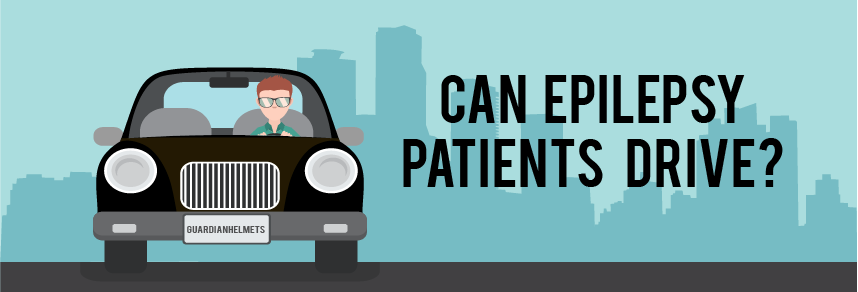This is our first in a series of articles where we will dispel a series of myths about epilepsy. One of the most common myths is that people with epilepsy can’t drive. But they can! Here’s the scoop.
More than 50 million people across the globe, with 1.1 percent of U.S. adults live with epilepsy. Driving with this condition requires careful consideration and adherence to safety guidelines to help minimize the risk of accidents or injury. By staying informed and working closely with your healthcare provider, individuals with epilepsy can navigate the road safely and confidently. The team at Chopra and Nocerino, LLP. has created new guide about the risks and safety tips on driving with this condition. Check it out below:
chopranocerino.com/guide-to-
Certainly patients with uncontrolled epilepsy are at high risk for motor vehicle accidents. No one is disputing that. But many adults can control their epilepsy with medications and other remedies, so driving does not pose a risk. Just like any individual, if you can’t drive, that puts severe limitations on your lifestyle. You may not be able to get to your job or to school, it hinders you from participating in social activities, and it can have a very negative psychological impact.
Driving Risk
As with most things in life, this too is a balance. Public safety must be balanced with providing reasonable opportunities for people with epilepsy to lead more independent lives. If you ask most newly diagnosed epilepsy patients about their biggest concerns, the ability to drive consistently ranks at the top of the list. It even ranks above independence and employment!
The concern about epileptic drivers revolves around injury and death to the driver, passengers, people in other cars and pedestrians or bystanders. Research studies do show that more motor vehicle accidents do occur with people who have epilepsy, but the number is far exceeded by people who drink and drive, for instance. Many accidents come from people who have not reported their seizures when applying for a license.
The concern is specific to the symptoms of epilepsy:
- Temporary confusion
- Staring as if under a spell
- Uncontrollable jerking movements (arms and legs)
- Loss of consciousness
Symptoms vary widely depending on the type and severity of the seizure. Most epileptics have the same seizure each time and should report to a doctor if a seizure lasts longer than five minutes.
Many patients have partial (focal) seizures that are effectively controlled by medications, but some focal seizures can involve loss of consciousness.
Generalized seizures, like petit mal, tonic, atonic, clonic, myoclonic and tonic-clonic (grand mal) seizures are more generalized with more severe symptoms that are harder to control.
History of Driving and Epilepsy
Historically, patients with epilepsy have been altogether banned from driving. Automobiles hit the road in the late 1800s and the first automobile crash caused by a person who had a seizure while driving was in 1906. Shortly after, when driver’s licenses became required, driving for epileptics was banned. As epilepsy became more understood and as anti-seizure medications were developed, states started relaxing restrictions. Wisconsin was the first state to give limited driving provisions to people with epilepsy. That was in 1949, and by the 1970s, all states had granted some provision.
State Laws
Rules do vary from state to state. Some states require you to be seizure-free for anywhere from three months to two years, while other states have no restrictions. Additionally, some states require your doctor’s evaluation that you can drive safely, and some states ask for periodic submittal of medical reports to ensure your seizures remain under control. The report must contain dates and severity of your last few seizures. If you’ve been seizure-free for up to five years, most states will no longer require you to submit medical reports.
Several states (California, Delaware, Nevada, New Jersey, Oregon, and Pennsylvania) have mandatory reporting laws requiring all health care providers to report to the DMV people with active epilepsy. Doctors who fail to report could be charged with negligence.
If you have a driver’s license, and are then diagnosed with epilepsy, it is your responsibility to notify the licensing authorities about your change in medical status. Your local Department of Transportation can provide you with the specifics. Nearly 700,000 people with epilepsy are licensed to drive in the USA.
Federal Laws
Commercial driver’s licenses are granted by the U.S. Department of Transportation (DOT). People who have been seizure-free and medication-free for 10 years can obtain this license. DOT will not grant licenses to people who are still taking anti-seizure medications or to people who continue to have ongoing seizures, and states may have additional requirements.
Maintaining Your License
You may have to present current medical evidence when you renew your license. This varies by state, so check with your DMV. If you lie about your seizures, saying that you have none when you actually do, that is grounds for the DMV to invalidate your license.
Falsification of any information opens you up to personal liability. In fact, you could be civilly or even criminally liable if you cause a motor vehicle accident while having a seizure. You’ll also likely be held liable if you are acting against your doctor’s medical advice (driving, not taking medication properly, etc.) or for not keeping the DMV updated on changes in your condition.
—
So, can epilepsy patients drive? Absolutely! Of course, drivers with active epilepsy are a greater risk on the road; but research suggests that epilepsy patents who follow their treatment and driving regulations, pose no greater driving risk than the general public.
Are you an epileptic patient? Tell us about your experience with the traffic laws… and if you need help or more information send us an email or let us know on Facebook, Instagram or Twitter.


 Guardian Soft Special Needs Helmet
Guardian Soft Special Needs Helmet Locking Chin Strap For Guardian Helmets
Locking Chin Strap For Guardian Helmets

